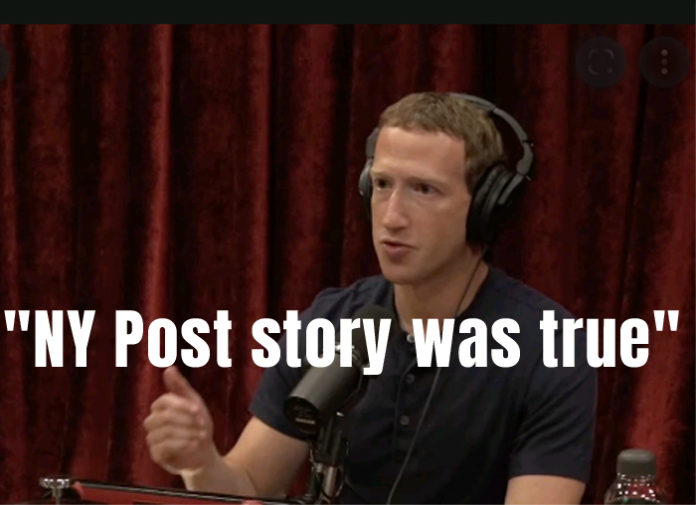Mark Zuckerberg finally admitted on Thursday that Facebook dropped the ball when the company banned the sharing of The Post’s exclusive report on Hunter Biden’s laptop ahead of the 2020 election.
Meta boss Mark Zuckerberg, who owns the social media platforms Facebook, WhatsApp and Instagram, made an appearance on the popular Joe Rogan podcast ‘Joe Rogan Experience.
During the interview, Joe Rogan asked “How do you handle a big news item that is controversial? Like there was a lot of attention on Twitter when the Hunter Biden story came out during the elections.”
To this, Zuckerberg replied, “We took a path different path than Twitter. During elections, the FBI basically came to us. As a team, they said we need to be on high alert because of a lot of Russian propaganda during the 2016 elections. (They told the Facebook team) that there is going to be a similar kind of dump (of political controversy), so just be vigilant. Our approach is different from Twitter. Twitter tells directly that you just can’t share that particular thing. Facebook works with third-party fact-checkers. There was a 5-7 day period when that particular story was being flagged as potential misinformation. So its distribution on Facebook was limited. We were not ‘black and white’ like Twitter. But we limited the reach of the story so that a fewer number of people were able to see it or share it. ”
Zuckerberg further stated that if the FBI tells them to be careful about something they take it seriously. And that (hunter Biden laptop) story was flagged by them, so Facebook did what was necessary. He even lamented that despite limiting the reach of the story, Facebook was still criticised by many for not limiting it enough.
When Joe Rogan asked if the FBI specifically asked them to suppress the Hunter Biden laptop story, Zuckerberg admitted that they did not mention it specifically, but Facebook did it anyway.
Zuckerberg’s admission that social media giant Facebook actively tweaked its algorithm to favour one particular candidate in the 2020 US elections and prevented him from facing negative public opinion at a crucial juncture in the election process has triggered some major reactions on social media.
While some people highlighted how Facebook actively tweeted its algorithm to favour one candidate in the US elections (Joe Biden), others pointed out the concern that Big Tech platforms like Facebook and Twitter are now deciding which stories would be consumed by the masses and how they will promote or suppress them based on Big Tech’s own definition of their legitimacy and usefulness.


















































